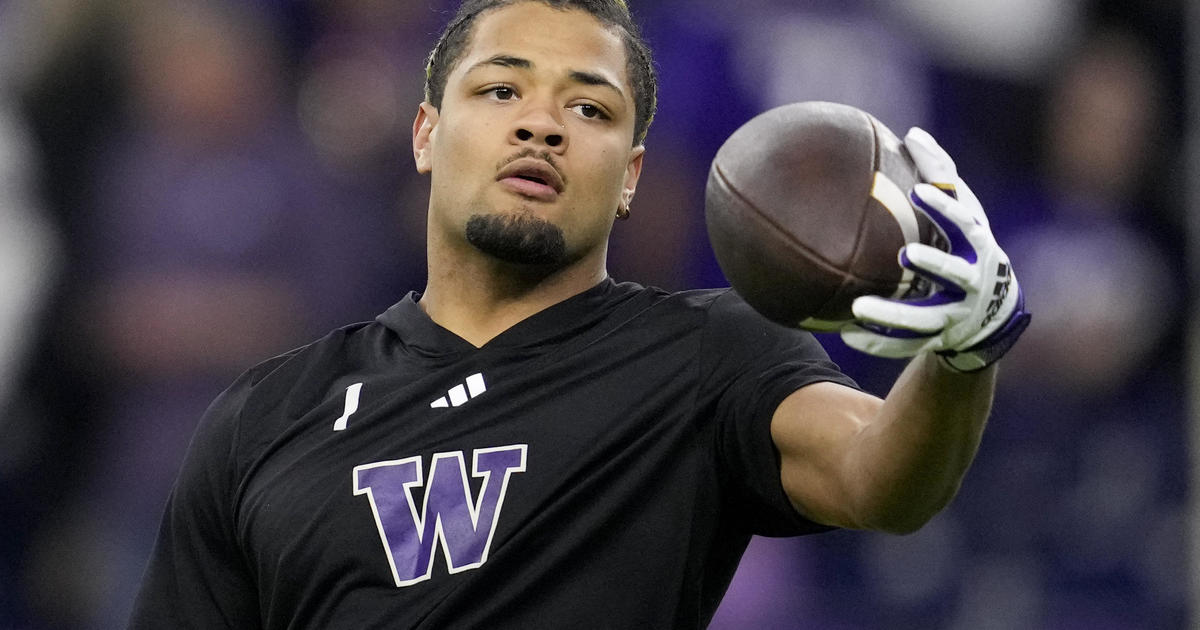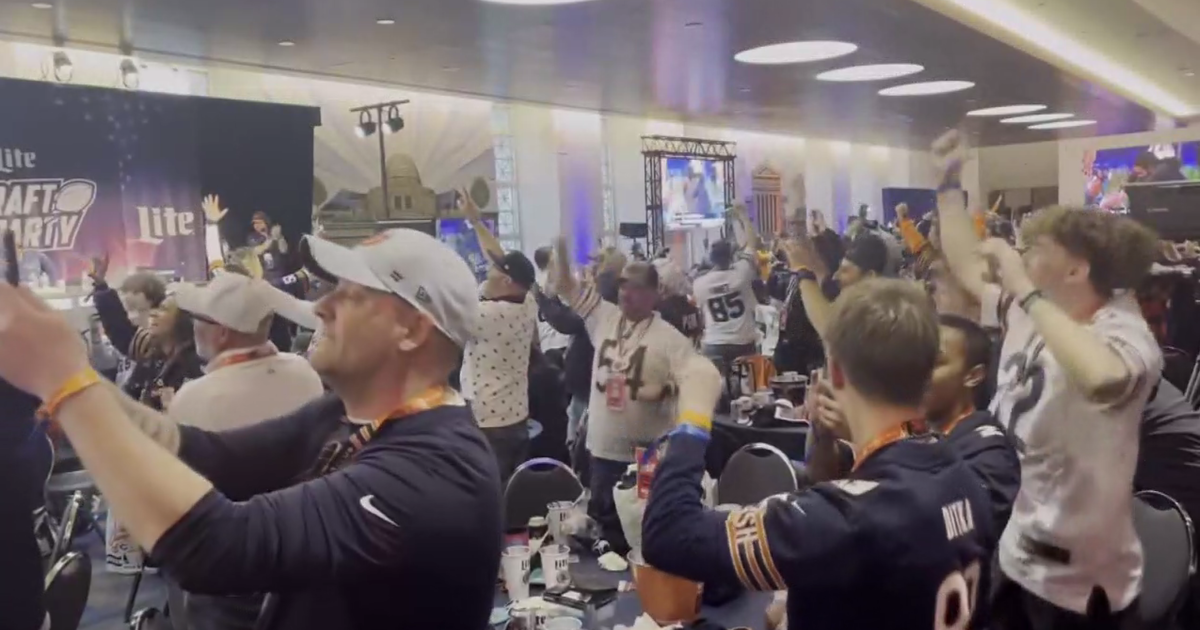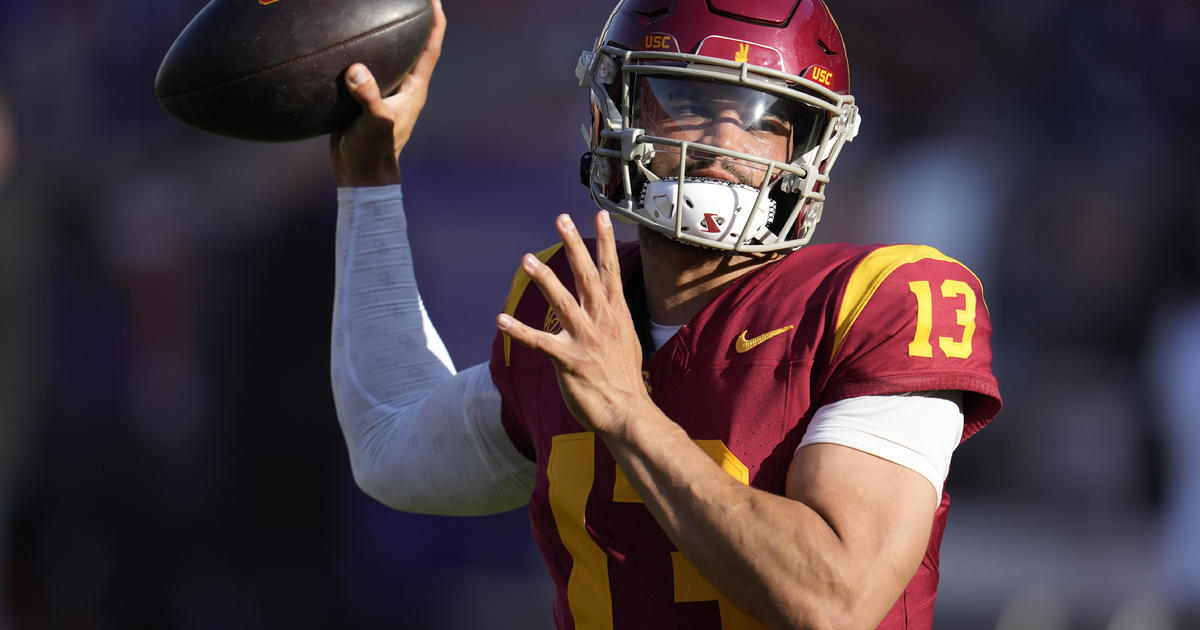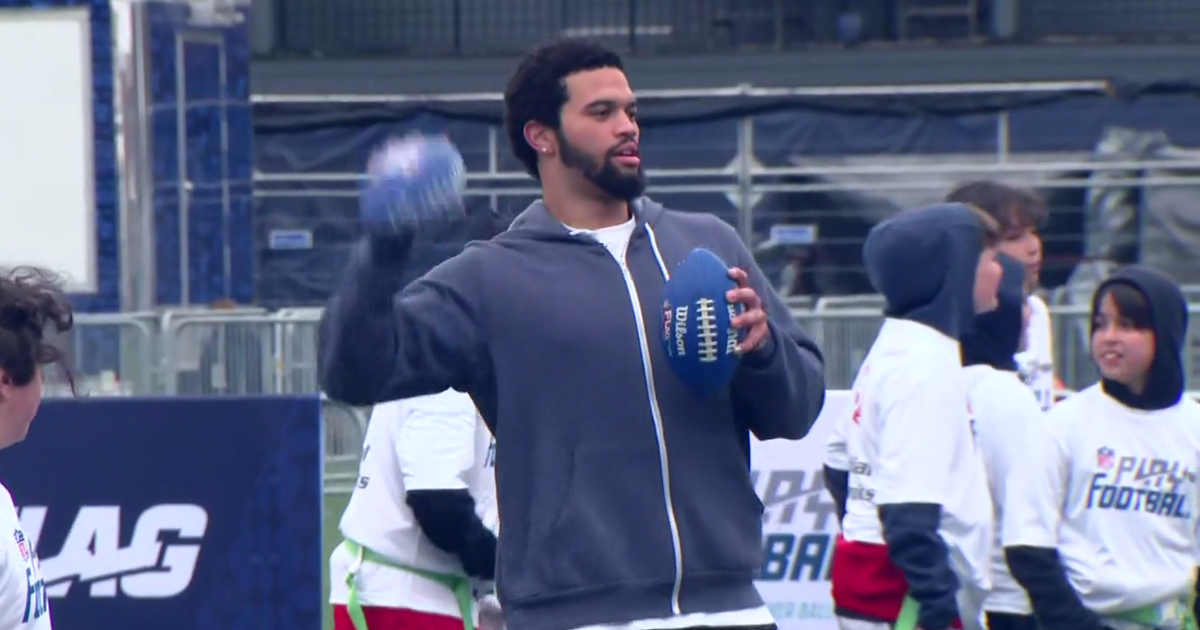Baffoe: Aaron Hernandez's NFL Accomplice
By Tim Baffoe--
(CBS) Andre Waters. Junior Seau. Dave Duerson.
Regardless of its high-powered attorneys and alibis that muddy the waters of examination, regardless of the deflections it will provide and the huffy resignation that it can't stop us from connecting our own biased dots "without all the facts," football is an accomplice to murder.
That football ravages the body has been known since linemen's crooked fingers were romanticized in NFL Films of yore and Hall of Famers limped to a podium to give an acceptance speech. The NFL's operation, though, exposed over recent years as the 21st-century's Big Tobacco, has shown that the league long knew of football's effects on not only the bodies but the brains of its players and worked to deflect attention from the destructiveness viewers should've always assumed from skull-cracking highlight tapes lauded for decades.
The latest known casualty of chronic traumatic encephalopathy, CTE, is former New England Patriot and temporarily convicted murderer Aaron Hernandez. On Thursday, it was revealed that Hernandez, who committed suicide in prison in April, had in fact the most severe case of CTE researchers have ever seen in a 27-year-old. According to Hernandez's lawyer, Jose Baez, his brain showed wear normally seen in brains of ex-players 40 years older than Hernandez. Dr. Ann McKee, director of the CTE Center at Boston University, studied Hernandez's brain and said that he had "early brain atrophy" in Stage 3 of CTE.
From her four-stage categorization of the brain disease:
Those with Stage 3 of C.T.E., including Duerson, a former All-Pro defensive back for the Chicago Bears who killed himself (in 2011), had cognitive impairment and trouble with executive functions like planning and organizing.
The NFL didn't murder anyone. It just helped manufacture the weapon.
Jovan Belcher. Ray Easterling. Justin Strzelczyk.
Hernandez was found guilty in 2015 of murdering Odin Lloyd in 2013. It was assumed by many that Lloyd's death was due to him knowing incriminating information regarding the murders of Daniel Jorge Correia de Abreu and Safiro Teixeira Furtado in 2012 for which Hernandez was tried and acquitted five days before his suicide. Hernandez had a distinguished history of violence and connections to it that ran parallel to playing football at the highest levels.
Hernandez shouldn't yet be forgiven for his actions any more than Belcher for his murder of his girlfriend or Duerson for his spousal abuse or the violence committed by any other deceased player, all of whom knew right from wrong while battling a demon they didn't understand and couldn't shake. I hesitate to absolve someone suffering from CTE for harming others as I do sufferers of a disease like alcoholism or other chemical dependence.
To do so erases victims of that violence. We can't "Yeah, but…" women subjected to domestic violence at the hands of gigantic professional collision machines. A CTE diagnosis of a murderer doesn't bring back Kasandra Perkins or Lloyd or Abreu or Furtado, and it won't comfort their loved ones into thinking, "Oh, well, since they were killed by someone with brain disease, I can rest easier."
"I'm not happy about (Hernandez's) death," Abreu's father, Ernesto, said in April. "It's actually a shame. Any loss of life is a shame. I believe in leaving things in God's hands."
Terry Long. Shane Dronett. Paul Oliver.
And victims of that violence aren't unlike the countless injured from second-hand smoke through no fault of their own. Tobacco barons didn't themselves harm those sick or dead who never themselves took a drag, but they supplied the weapon.
This time around the weapon is a helmet, one supposedly designed to protect people but one that often changes them instead. A facemask becomes a permanent mask, a shadow of the former self, the player fretting upon some demented stage away from the field. And then is heard no more, either withered away into darkness or explosively extinguished by his own hand.
Hernandez died of violence, violence to himself from unleashing violence upon others between exchanging on-field violence among peers. The third likely contributed to the second which ended in the first. He's tragic, not in the overused Americanized version of the word but in the dramatic sense. A tragic figure might draw some pity from the audience, but he's not necessarily forgiven. And there's often an accomplice, arguably more evil than the tragic figure.
The accomplice spurns the other one on, creates him in a way. Brutus has hardly any murder in him before Cassius plants a seed. Macbeth probably doesn't act on regicide without Lady Macbeth questioning his manhood. Othello is doing just fine before Iago decides to play evil puppeteer. Still, Shakespeare doesn't ask us to un-convict these men of murder.
Nor does he forget to punish the accomplices. Cassius dies by the sword. Lady Macbeth degenerates into madness before suicide. Iago is stabbed in the end, but we don't witness a last breath.
When asked why he lied so profusely to a man to make that man kill his innocent wife, Iago sneers: "Demand me nothing. What you know, you know. / From this time forth I never will speak word."
He won't admit a damn thing while acknowledging that others can make whatever connections they want. The tobacco CEOs got tight-lipped when in a similar position, too.
And we will make connections, ones that the NFL can "Who? Me?" about. If he doesn't bleed out from his wound, perhaps Iago, who helps create an evil that ripples across multiple dead, recovers to take a job in an NFL office. Hell, Ray Lewis gets a check to do the league's dirty work.
Maybe Hernandez always had this violence in him despite anything football. Like veteran Karl Marlantes says in Ken Burns' documentary "The Vietnam War," the military doesn't turn people into killing machines. "It's just finishing school." Hits to the head in a culture of choreographed violence probably help do the same trick.
In the end, people are dead. Football has an obvious connection. Again. Besides a lawsuit, the NFL will move on from it all. Again. Until the next one. Again.
Aaron Hernandez. Daniel Jorge Correia de Abreu. Safiro Teixeira Furtado. Odin Lloyd.
Tim Baffoe is a columnist for CBSChicago.com. Follow Tim on Twitter @TimBaffoe. The views expressed on this page are those of the author, not CBS Local Chicago or our affiliated television and radio stations.



